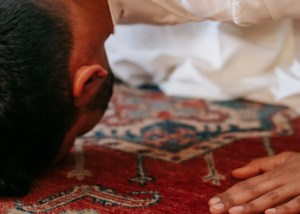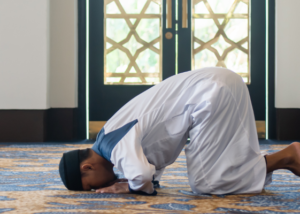In the Hanafi Madhab is it permitted to join prayers whilst travelling like other Madhabs. If not, can one follow another Madhab on this? Would it be true to say that the scholars of the Indian subcontinent are stricter on this matter as opposed to Hanafis in the Arab world?
Quran
Hadith
Islamic Text
In the Hanafi Madhab, the people allowed to join prayers are those performing Hajj, on the day of Arafah. They are permitted, with conditions, to join Dhuhr and Asr, and in the evening, they are obliged to join Maghrib and Isha.
Other than that, one is not allowed to join prayers, even if he is a traveller or feeling unwell. This is because the Hanafis said that Allah (Most High) mentioned in the Holy Quran, that the prayer is a time specific obligation. It is very clear that each prayer has its own time, therefore, you are not allowed to join the prayers.
إِنَّ الصَّلَاةَ كَانَتْ عَلَى الْمُؤْمِنِينَ كِتَابًا مَوْقُوتًا
Indeed prayer is a time specific obligation upon the believers. (Surah al-Nisa, 103).
عَنْ عَبْدِ اللَّهِ رَضِيَ اللَّهُ عَنْهُ قَالَ: مَا رَأَيْتُ النَّبِيَّ صَلَّى اللهُ عَلَيْهِ وَسَلَّمَ صَلَّى صَلاَةً بِغَيْرِ مِيقَاتِهَا، إِلَّا صَلاَتَيْنِ: جَمَعَ بَيْنَ المَغْرِبِ وَالعِشَاءِ
Abdullah ibn Mas’ood said, ‘I never observed the Prophet ﷺ perform any prayer out of its time except for two prayers. He ﷺ combined Maghrib and Isha.’ (Sahih al-Bukhari 1682).
This Hadith is also found in Sahih Muslim (292 – 1289) with similar wording. In Musnad al-Bazar (1907) it specifies that these two prayers were prayed at Muzdalifah.
Imam al-Kaasaani said in Badaai’ al-Sanaai:
وَعَلَى هَذَا الْأَصْلِ قَالَ أَصْحَابُنَا: إنَّهُ لَا يَجُوزُ الْجَمْعُ بَيْنَ فَرْضَيْنِ فِي وَقْتِ أَحَدِهِمَا إلَّا بِعَرَفَةَ وَالْمُزْدَلِفَةِ فَيُجْمَعُ بَيْنَ الظُّهْرِ وَالْعَصْرِ فِي وَقْتِ الظُّهْرِ بِعَرَفَةَ، وَبَيْنَ الْمَغْرِبِ وَالْعِشَاءِ فِي وَقْتِ الْعِشَاءِ بِمُزْدَلِفَةَ، اتَّفَقَ عَلَيْهِ رُوَاةُ نُسُكِ رَسُولِ اللَّهِ – صَلَّى اللَّهُ عَلَيْهِ وَسَلَّمَ – أَنَّهُ فَعَلَهُ، وَلَا يَجُوزُ الْجَمْعُ بِعُذْرِ السَّفَرِ وَالْمَطَرِ
بدائع الصنائع في ترتيب الشرائع
And upon this principle our companions said, indeed it is not permitted to combine two Fard (obligatory) prayers in the time of one of them, except in Arafah and al-Muzdalifah. So he combines Dhuhr and Asr in the time of Dhuhr in Arafat, and Maghrib and Isha in the time of Isha in al-Muzdalifah. The narrators of the pilgrimage rights (Nusuk) of the Messenger of Allah ﷺ agreed upon the fact that he ﷺ done this. (Other than this) it is not permitted to combine prayers, (even if it be) due to the excuse of travelling or rain.
The Hanafis understood the Hadith narrations that indicate joining prayers, to refer to praying one prayer at the end of its time and the other at its beginning (al-Jama’ Sooratan).
عَنْ أَنَسٍ، عَنِ النَّبِيِّ صَلَّى اللهُ عَلَيْهِ وَسَلَّمَ: إِذَا عَجِلَ عَلَيْهِ السَّفَرُ، يُؤَخِّرُ الظُّهْرَ إِلَى أَوَّلِ وَقْتِ الْعَصْرِ، فَيَجْمَعُ بَيْنَهُمَا، وَيُؤَخِّرُ الْمَغْرِبَ حَتَّى يَجْمَعَ بَيْنَهَا وَبَيْنَ الْعِشَاءِ، حِينَ يَغِيبُ الشَّفَقُ
Anas narrated, ‘When the Messenger of Allah ﷺ had to set out on a journey hurriedly, he delayed the Dhuhr prayer to the beginning of Asr time, so he ﷺ combined them. And he ﷺ would delay the Maghrib prayer to the time when the twilight disappeared (beginning of Isha) and then combine it with the ‘Isha’ prayer.’ (Sahih Muslim, 704 -48).
So Dhuhr was prayed at its end time, such that, when it had been completed Asr time had just started. Thus each prayer was actually prayed within its own time, although it looked like the prayers had been combined.
وَتَفْسِيرُهُ أَنَّهُ يُؤَخِّرُ الظُّهْرَ إِلَى آخَرِ وَقْتِهَا، وَيُقَدِّمُ الْعَصْرَ فِي أَوَّلِ وَقْتِهَا
They (the narrations about combining prayers) are explained as Dhuhr being delayed to its end time, and Asr being prayed at its beginning time. (Imam al-Mowsili, al-Ikhtiyaar).
A weak narration in Tabarani is even more explicit in supporting the Hanafi position:
عَنْ عَبْدِ اللهِ قَالَ: كَانَ رَسُولُ اللهِ صَلَّى اللهُ عَلَيْهِ وَسَلَّمَ يَجْمَعُ بَيْنَ الْمَغْرِبِ وَالْعِشَاءِ، وَيُؤَخِّرُ هَذِهِ فِي آخِرِ وَقْتِهَا، وَيَجْعَلُ هَذِهِ فِي أَوَّلِ وَقْتِهَا
Abdullah (bin Masood) said: The Messenger of Allah ﷺ used to combine Maghrib and Isha. He ﷺ would delay this prayer to its end time and pray that one at the beginning of its time. (Tabarani al-Mu’jam al-Kabeer 9880, weak).
As for following a ruling from another Madhab, this is permissible with conditions. Please see the answer below for details and references.
Finally, it is true that the subcontinent scholars tend to be stricter regarding the issue of taking a Rukhsah (dispensation), with the exception of those who are very knowledgeable. They tend to be more lenient. This strictness does not reflect the position mentioned Hanafi books. As they are very clear on the permissibility of taking a Rukhsah.
A reason for this may be the fact that the subcontinent scholars tend not to have people of other Madhaahib (Schools of Fiqh) surrounding them, so they are not so familiar with the practice of other Madhaahib, thus they find it more difficult to accept. However, that is not a valid reason to be strict on Rukhas (rulings from others Madhabs). As Hanafis, we should follow what is authentically mentioned in our books, not that which is prevalent amongst a group on contemporary scholars.
– Answered by Shaykh Noorud-deen (04.01.2021)
See also:






